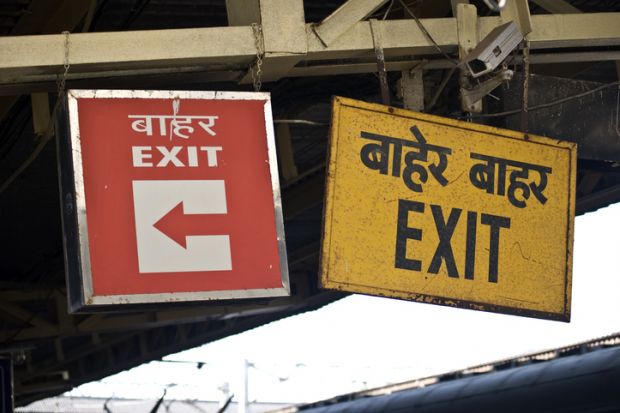Academics have decried political interference in universities after recent events in which the governor of an Indian state demanded that nine vice-chancellors step down from their posts.
On 23 October, Kerala governor Arif Mohammed Khan directed vice-chancellors to submit their resignations, alleging that they had not been rightly appointed due to a technicality. The administrators were reportedly staying in their posts, in what one national newspaper characterised as the likely beginnings of a “protracted legal battle”.
The incident comes against a backdrop of recent political tensions at Indian universities, including accounts of university officials reprimanding academics for openly criticising government policies.
Scholars speaking to Times Higher Education agreed that the event in Kerala was “unprecedented” in scale, despite a history of politically backed academic appointments in India.
“This is part of a broad effort to politicise the universities and many other aspects of Indian life,” said Philip Altbach, a professor at Boston College’s Center for International Higher Education.
While Professor Altbach said that a potential court ruling to support more independence in the appointment of vice-chancellors would mark a “very positive development” for India, he was less certain of the timeline of such a process, let alone of a positive outcome in the case.
“It is difficult to predict how or how long this will play out. The Indian courts are notoriously slow,” he said.
Deepti Acharya, assistant professor of political science at the Maharaja Sayajirao University of Baroda, called the government’s attempt to sway decisions on higher education appointments “obviously problematic”.
“Unfortunately, in India, political influence is a historical fact and a British legacy. Indian governments, central and state both [try] to control the appointments,” she said.
She noted that cases in which the appointment process gets caught in push and pull between governors and state governments were common, but for a governor to use executive powers to demand resignations was rare.
Dr Acharya was also sceptical about the courts’ ability to reform the hiring process for vice-chancellors. Currently, in most cases, a state governor is the ex officio chancellor of the universities in that state.
While state secretaries in Kerala reportedly suggested possible legislation to remove the governor as chancellor of universities, Dr Acharya worried that any changes to the vice-chancellor recruitment process, however well intended, would probably mean a shift of power between government officials.
“Passing a bill is not the end of the political influence…this will create a new problem,” she said.
Still, Dr Acharya was not as pessimistic that politically motivated vice-chancellor appointments would significantly reshape academia, given the “temporary” nature of the post, which candidates assume for three years.
“For the concerned university [their] decisions are significant, but I doubt if [they] can change the entire educational structure in such a short time,” she said.




